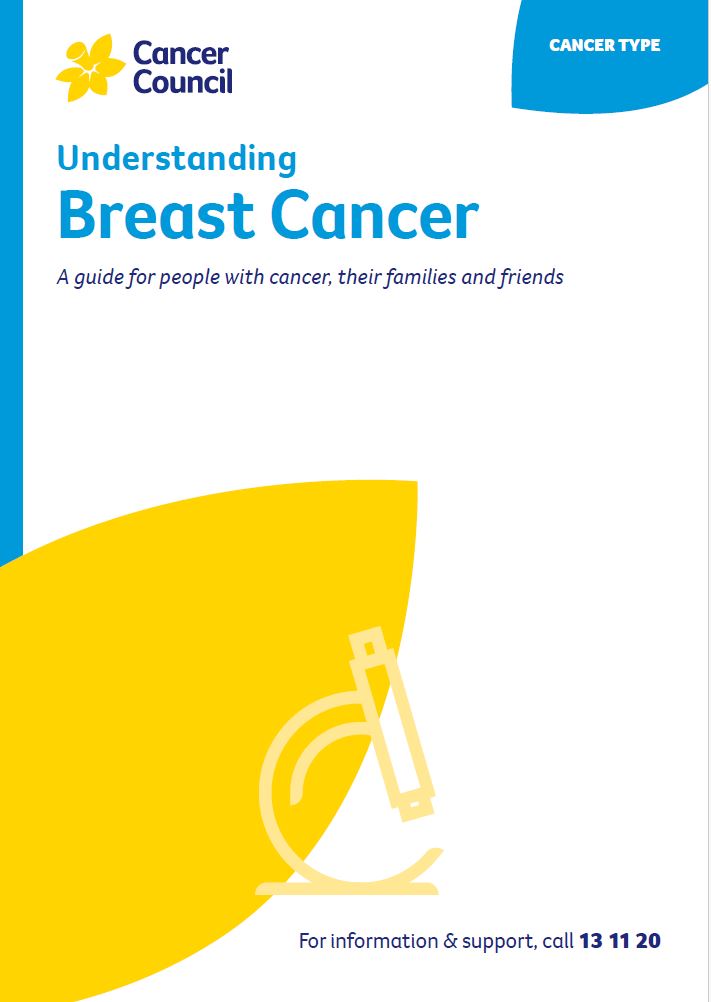- Home
- Breast cancer
- Treatment
- Surgery
- What to expect after breast surgery
What to expect after breast surgery
Discover what to expect after breast surgery, from hospital stays to wound care and follow-up support.
Learn more about:
Overview
If you have any questions about your recovery and how best to look after yourself when you get home, ask the doctors and nurses caring for you. If you are referred to a breast care nurse, they can give you information about what to expect after surgery and provide support.
Your hospital stay will depend on the surgery you have and how well you recover:
- breast-conserving surgery – you usually go home the same day, or may stay overnight
- mastectomy – you usually stay in hospital for 1–2 nights
- reconstruction after mastectomy – you usually stay in hospital for several days.
What to expect after surgery
Managing dressing and tubesA dressing will cover the wound to keep it clean. This may be changed while you are in hospital but is usually removed after about a week. You may have one or more drainage tubes to drain fluid from the surgical site into a bottle. These can stay in place for up to one week, or occasionally 2 weeks. Nurses will show you how to look after the wound and drainage tubes at home, or a community nurse, GP or your surgeon may help you.If you notice redness or discharge around the surgical area or develop a fever over 38°C, let your treatment team know immediately. | |
Recovery timeThe time it takes to recover from surgery will depend on the type of surgery you have had and your health. You may feel better after a few days, or it may take several weeks or longer if you have had a mastectomy with a reconstruction. | |
Avoid heavy liftingDo not do vigorous physical activity or heavy lifting in the initial weeks after surgery. Your treatment team will let you know when you can resume normal activities. You may be given some gentle exercises to reduce the risk of shoulder stiffness. | |
 | Shower carefullyKeep the wound clean and gently pat it dry after showering. Avoid baths. |
Manage painWhile in hospital, you will have pain relief through a drip (intravenous or IV), an injection or as tablets. You will also be given pain medicine when you go home. You are likely to need stronger pain relief after an ALND or a mastectomy than after breast-conserving surgery. | |
 | Preventing blood clotsWhile in bed, you should try to do some deep breathing exercises, and move your legs around to help prevent blood clots in the deep veins of your legs (deep vein thrombosis or DVT). As soon as you are able, you will be asked to get up and walk around.You may wear elastic (compression) stockings or use other devices to help prevent clots. Your doctor might prescribe medicine that reduces the risk of blood clots forming. |
Avoid cutsYour treatment team may advise you to wait until the wound has completely healed if you want to shave or wax your armpits. | |
Apply moisturiserGently massage the area with moisturiser once any stitches or adhesive strips are removed and the wound has completely healed. About 6 weeks after surgery, your surgeon may suggest that you use silicone gels and sheets to reduce scarring. |
→ READ MORE: What your breast looks like after surgery
Podcast: Coping with a Cancer Diagnosis
Listen to more of our podcast for people affected by cancer
More resources
Dr Diana Adams, Medical Oncologist, Macarthur Cancer Therapy Centre, NSW; Prof Bruce Mann, Specialist Breast Surgeon and Director, Breast Cancer Services, The Royal Melbourne and The Royal Women’s Hospitals, VIC; Dr Shagun Aggarwal, Specialist Plastic and Reconstructive Surgeon, Prince of Wales, Sydney Children’s and Royal Hospital for Women, NSW; Andrea Concannon, consumer; Jenny Gilchrist, Nurse Practitioner Breast Oncology, Macquarie University Hospital, NSW; Monica Graham, 13 11 20 Consultant, Cancer Council WA; Natasha Keir, Nurse Practitioner Breast Oncology, GenesisCare, QLD; Dr Bronwyn Kennedy, Breast Physician, Chris O’Brien Lifehouse and Westmead Breast Cancer Institute, NSW; Lisa Montgomery, consumer; A/Prof Sanjay Warrier, Specialist Breast Surgeon, Chris O’Brien Lifehouse, NSW; Dr Janice Yeh, Radiation Oncologist, Peter MacCallum Cancer Centre, VIC.
View the Cancer Council NSW editorial policy.
View all publications or call 13 11 20 for free printed copies.

